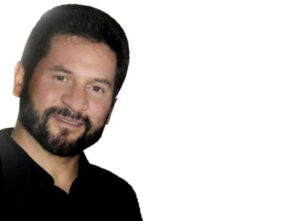NOTE FROM THE EDITOR
Dear readers:
You might know from the news that Australian editor, publisher, and activist who founded WikiLeaks in 2006, Julian Assange, came to international attention in 2010 when it published a series of leaks provided by U.S. Army intelligence analyst Chelsea Manning.
He is currently under arrest in England – unlawfully – awaiting extradition to the United States for exposing the vast US unlawful espionage network against US citizens. He is being charged under the Espionage Act.
If you haven’t being following up the story and just know a little bit, here is an interesting article written by Joe Lauria, who explains in some details how the US is doing this to someone who was basically doing journalism – abroad. – Marvin Ramírez.
Why Julian Assange, a non-US citizen, operating outside the US, is being prosecuted under the US Espionage Act
Many people ask how can Julian Assange, an Australian who’s never operated in the U.S., be prosecuted under the U.S. Espionage Act. Here is his answer
by Joe Lauria
Shared from Consortium News
If the original 1917 Espionage Act were still in force, the U.S. government could not have charged WikiLeaks publisher Julian Assange under it. The 1917 language of the Act restricted the territory where it could be applied to the United States, its possessions and international waters:
“The provisions of this title shall extend to all Territories, possessions, and places subject to the jurisdiction of the United States whether or not continguous thereto, and offenses under this title when committed upon the high seas or elsewhere within the admiralty and maritime jurisdiction of the United States …”
WikiLeaks publishing operations have never occurred in any of these places. But in 1961 Congressman Richard Poff, after several tries, was able to get the Senate t0 repeal Section 791 that restricted the Act to “within the jurisdiction of the United States, on the high seas, and within the United States.”
Poff was motivated by the case of Irvin Chambers Scarbeck, a State Department official who was convicted of passing classified information to the Polish government during the Cold War under a different statute, the controversial 1950 Subversive Activities Control Act, or McCarran Act.
(Congress overrode a veto by President Harry Truman of the McCarran Act. He called the Act “the greatest danger to freedom of speech, press, and assembly since the Alien and Sedition Laws of 1798,” a “mockery of the Bill of Rights” and a “long step toward totalitarianism.” Most of its provisions have been repealed.)
Polish security agents had burst into a bedroom in 1959 to photograph Scarbeck in bed with a woman who was not his wife. Showing him the photos, the Polish agents blackmailed Scarbeck: turn over classified documents from the U.S. embassy or the photos would be published and his life ruined. Adultery was seen differently in that era.
Scarbeck then removed the documents from the embassy, which is U.S. territory covered by Espionage Act, and turned them over to the agents on Polish territory, which at the time was not.
Scarbeck was found out, fired, and convicted, but he could not be prosecuted under the Espionage Act because of its then territorial limitations. That set Congressman Poff off on a one-man campaign to extend the reach of the Espionage Act to the entire globe. After three votes the amendment was passed.
The Espionage Act thus became global, ensnaring anyone anywhere in the world into the web of U.S. jurisdiction. After the precedent being set by the Assange prosecution, it means that any journalist, anywhere in the world, who publishes national defense information is not safe from an Espionage Act prosecution.
(Joe Lauria is editor-in-chief of Consortium News and a former UN correspondent for The Wall Street Journal, Boston Globe, and numerous other newspapers. He was an investigative reporter for the Sunday Times of London and began his professional career as a stringer for The New York Times. He can be reached at joelauria@consortiumnews.com and followed on Twitter @unjoe.)



